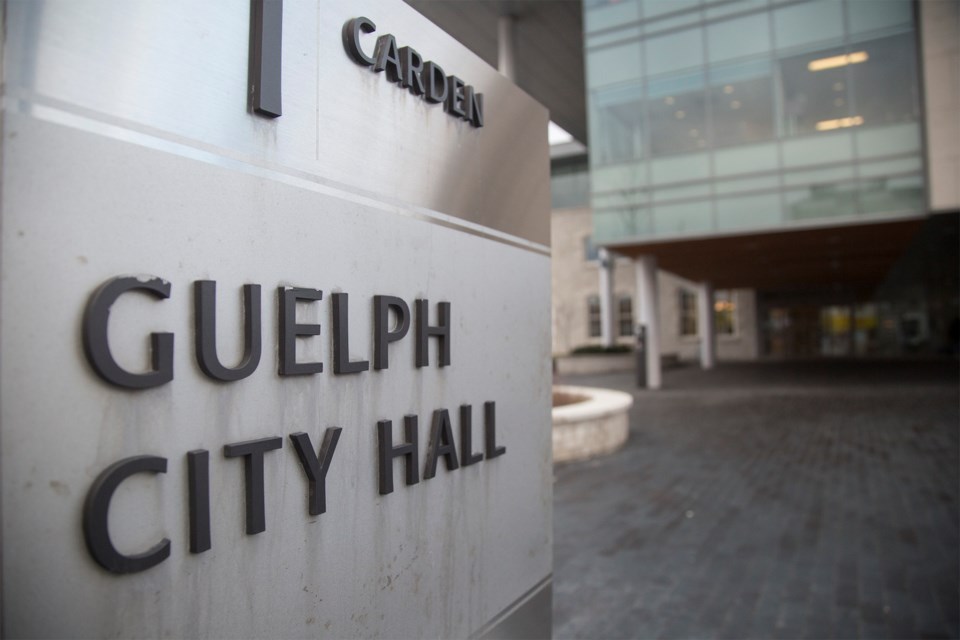City operations saw a sharp drop in energy use and greenhouse gas emissions last year, as well as a dip in dependence on fossil fuels, a staff report shows.
This came during a year that saw several projects undertaken to bring down those numbers, as well as pandemic-related service reductions and many staff working from home, among other city actions aimed at slowing the spread of COVID-19.
“I’m happy to see we’re trending the right way,” said Bryan Ho-Yan, the city’s manager of corporate energy and climate change, who authored the report. “There’s a lot of work to do. … The challenge is going to be maintaining that downward trend.”
The second annual Corporate Environmental Sustainability Report shows city operations consumed 13 per cent less energy last year, compared to 2019. That includes everything from recreation centres to Guelph Transit, public works, street lights, administrative services and more.
Throughout 2020, the city used 136.89 million kWhe (kilowatt hours equivalent) of energy in its various forms last year, down from 157.15 million kWhe in 2019.
The city also shifted away from fossil fuels during 2020, with 25.5 per cent of all energy consumed coming from renewable resources. A year earlier, that figure was 24.4 per cent.
Part of that increase is attributable to a more than 250 per cent increase in the city’s solar power generation, the report notes.
In turn, the city produced 16.92 million kilograms of greenhouse gas (GHG) emissions during 2020, down from 24.37 million kilograms in 2019. That’s despite a 50 per cent increase in GHG emissions associated with the provincial electricity supply.
“I think there’s good stuff, but there’s a lot of concern as well,” said Evan Ferrari, executive director of eMERGE Guelph Sustainability, of information in the report. He worries greenhouse gas emissions and energy consumption will soon rise again. “The 2020 data squarely falls in the midst of a pandemic.”
If the city is going to meet its stated goal of achieving 100 per cent renewable energy by 2050, there remains much work to be done, agree Ho-Yan and Ferrari – the latter of which notes that even if percentage reduction rates are maintained at 2020 levels, 2050 is out of reach.
“Once we’re out of (pandemic-related service reductions), we’re really going to bounce back … unless the city takes their own acknowledgement of a climate emergency seriously,” Ferrari said, calling for the overall timeline to be moved up, with interim targets set for each term of council. “2050 is too late.”
“The reality is, COVID or not, there’s going to be up years and down years," said Yo-Han, suggesting there will be "a bit of a blip" as services return to more traditional levels. “There is a lot of talk about whether or not we can hit that target or even should set a new target, I think more emphasis has to be on … that it’s the right way to do things.”
In addition to a pandemic-inspired decrease in the use of city facilities, several projects were undertaken that come with a lessened environmental impact.
Among the ones cited in the report are the use of an electric ice resurfacer at the West End Community Centre (WECC), decommissioning of the Gordon Street sewage pumping station in favour of more gravity-fed operation, lighting upgrades at several city facilities, and installation of a cold water flooding system at the WECC and Exhibition Arena.
“There’s been lots going on,” said Ho-Yan.
Projects in the works include a pilot bus electrification program which could see the purchase of four vehicles this year. City staff is currently reviewing purchase proposals, Ho-Yan said, noting the request for proposals closed on Monday.
